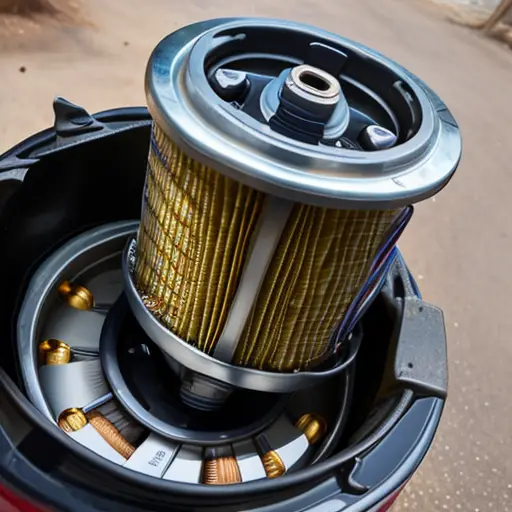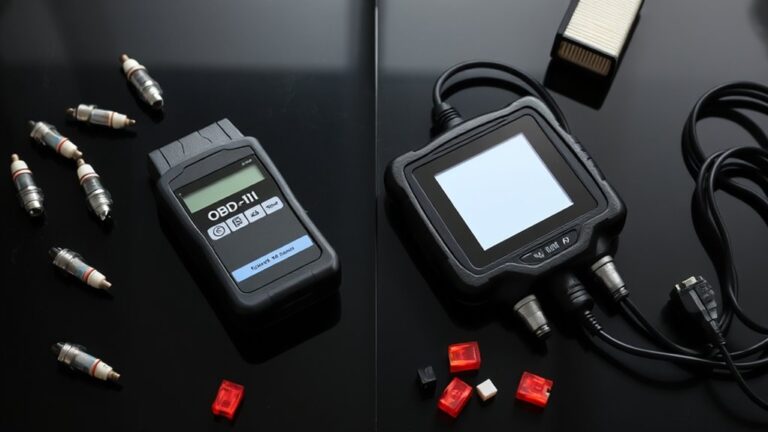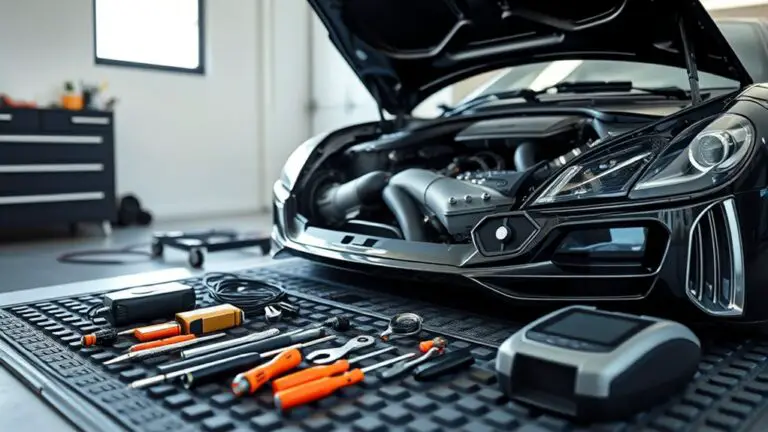Fram Oil Filter Problems: Common Issues and Solutions
Oil filters are an essential component of any engine’s lubrication system, helping to protect it from contaminants and debris. Fram is a well-known brand that has been providing oil filters for over 75 years. While Fram oil filters are generally reliable, there have been reports of issues with some of their products.
This article will discuss some of the common problems associated with Fram oil filters, including issues with quality control, compatibility, and installation. We will also provide some solutions to these problems, helping you to make an informed decision when choosing an oil filter for your vehicle.
It’s important to note that while Fram has had some reported issues, they are still a reputable brand that offers a wide range of quality products. However, it’s always a good idea to be aware of potential problems and take steps to mitigate them, ensuring that your engine remains protected and running smoothly.
1. They Sell Defective Oil Filters
While it is true that there have been reports of defective Fram oil filters, it’s important to note that this is not an isolated issue and affects many different brands of oil filters. Defective oil filters can cause serious engine damage, as they may fail to trap contaminants and debris, allowing them to circulate freely within the engine.
Some of the reported issues with Fram oil filters include leaking, poor filtration, and malfunctioning anti-drain back valves. In some cases, the filters may fail completely, leading to catastrophic engine failure.
If you suspect that your Fram oil filter is defective, it’s important to replace it immediately. It’s also a good idea to inspect your engine for signs of damage or wear, and to have it checked by a professional mechanic.
To prevent these issues from occurring in the first place, it’s important to choose a reputable brand and to follow the manufacturer’s recommendations for installation and maintenance. Regular oil and filter changes are also important, as they help to keep the engine running smoothly and reduce the risk of contamination and damage.
2. Initially, Their Oil Filters Come Without A Drain Back Valve
It’s true that older Fram oil filters did not include an anti-drain back valve, which can cause problems in certain types of engines. An anti-drain back valve is a small rubber flap that helps to prevent oil from draining out of the filter and back into the engine when the engine is turned off.
Engines that have a vertical oil filter mount or that are located on an incline may experience oil drain back if the filter does not have an anti-drain back valve. This can lead to problems such as excessive wear, poor oil pressure, and engine damage.
However, it’s important to note that Fram has addressed this issue and now offers oil filters that include an anti-drain back valve. In fact, most modern oil filters include this feature as standard.
If you have an older engine or a vehicle that is prone to oil drain back, it’s important to choose an oil filter that includes an anti-drain back valve. You can check the specifications of your chosen oil filter to see if it includes this feature, or consult with a professional mechanic for advice on the best type of filter for your engine.
3. Fram Oil Filters Have A Thin Media
Fram oil filters are known for having a relatively thin filter media compared to some other brands. The filter media is the material inside the filter that traps contaminants and debris, preventing them from circulating through the engine.
While some people may view a thinner filter media as a potential issue, it’s important to note that the thickness of the filter media is not necessarily an indicator of the filter’s effectiveness. Fram oil filters use a blend of cellulose and synthetic fibers that are engineered to provide excellent filtration while maintaining adequate oil flow.
Fram also offers a variety of different oil filters with different levels of filtration efficiency, allowing you to choose the right filter for your vehicle’s needs. The Extra Guard filter, for example, offers 95% filtration efficiency, while the Tough Guard filter offers 99% efficiency.
It’s also worth noting that a thinner filter media can actually be beneficial in certain situations. A thinner media can provide less resistance to oil flow, ensuring that the engine receives an adequate supply of oil even in extreme conditions.
The thickness of the filter media should not be the only factor you consider when choosing an oil filter. Other factors such as compatibility, filtration efficiency, and anti-drain back valve design are also important to take into account.
4. The Construction Build Is Very Inferior
There have been some reports of Fram oil filters having issues with construction quality. Some users have reported that the filters can leak, crack or even fall apart, which can lead to oil leakage, engine damage, or even failure.
However, it’s important to note that these issues are not unique to Fram oil filters and can happen with filters from any brand. Additionally, many of these issues may be caused by improper installation or damage during shipping or handling.
Fram has responded to these concerns by improving the construction of their filters, adding features such as a heavy-duty canister and improved seam welding. In fact, some of their filters are now considered to be among the most durable and reliable on the market.
If you do experience issues with the construction quality of your Fram oil filter, it’s important to contact the manufacturer to report the issue and to replace the filter immediately. It’s also a good idea to inspect your engine for signs of damage or wear, and to have it checked by a professional mechanic if you suspect that there may be a problem.
5. Fram Oil Filters Aren’t Compatible With High Flow Oil Pumps
There have been some reports that Fram oil filters may not be compatible with high flow oil pumps, which can cause a drop in oil pressure and potentially damage the engine. This is because some Fram filters have a relatively low bypass pressure setting, which can cause the filter to open the bypass valve and allow unfiltered oil to flow through the engine if the oil pressure exceeds a certain threshold.
However, it’s important to note that this issue is not unique to Fram oil filters and can happen with filters from other brands as well. Additionally, not all Fram filters have a low bypass pressure setting, and the company has introduced new filters that are specifically designed to work with high flow oil pumps.
If you have a high flow oil pump or are concerned about oil pressure issues, it’s important to choose a filter that is specifically designed for use with high flow pumps, regardless of the brand. You should also consult with a professional mechanic or oil expert to determine the best filter and oil pump combination for your specific vehicle and driving conditions.
Who Makes These Filters?
Fram oil filters are manufactured by Fram Group IP LLC, which is a subsidiary of the global automotive supplier, Rank Group Limited. Fram Group IP LLC is based in Lake Forest, Illinois, and produces a wide range of automotive filters and related products, including oil filters, air filters, fuel filters, and cabin air filters.
Fram is one of the most well-known and widely-used oil filter brands in the United States and has a reputation for producing high-quality and affordable filters. The company offers a range of filters that are designed to meet the needs of different types of vehicles, driving conditions, and performance requirements.
In addition to its Fram brand, the company also owns and manufactures filters under several other brands, including AC Delco, Autolite, and Prestone. The company’s filters are sold through a variety of channels, including automotive retailers, parts stores, and online marketplaces.
What Are The Experiences People Have Had With Fram Oil Filters?
People have had a range of experiences with Fram oil filters. Some users have reported that they have had no issues with their Fram filters and that they have performed well over long periods of use. Others have reported issues such as leaks, clogs, and construction quality problems.
There have also been some reports of Fram filters being incompatible with certain engines or oil systems, as well as issues with the filter media, drain back valve, and bypass valve.
However, it’s important to note that many of these issues are not unique to Fram filters and can happen with filters from any brand. Additionally, many of these issues may be caused by improper installation or other factors beyond the control of the manufacturer.
Overall, Fram oil filters have a reputation for being reliable and affordable, and many users continue to use them with good results. However, as with any automotive product, it’s important to choose the right filter for your vehicle and driving conditions, and to properly maintain and inspect your engine to ensure optimal performance and longevity.
Why Do Fram Oil Filters Cause Tapping At Startup?
There have been reports of Fram oil filters causing tapping or knocking sounds during engine startup. This can be caused by a variety of factors, including the filter media, anti-drainback valve, or bypass valve.
One possible cause is that some Fram filters have a relatively thin filter media, which may not provide sufficient filtration at startup when the engine is cold and the oil is thicker. This can cause the engine to make tapping or knocking sounds as it struggles to circulate oil through the engine.
Another possible cause is that some Fram filters do not come with an anti-drainback valve, which is designed to prevent oil from draining out of the filter and into the oil pan when the engine is turned off. This can cause the engine to make tapping or knocking sounds at startup as it takes longer to build up oil pressure.
Additionally, some Fram filters have a bypass valve that is set to open at a relatively low pressure, which can cause unfiltered oil to bypass the filter and flow through the engine at startup. This can also cause tapping or knocking sounds as the engine is not receiving sufficient filtration.
It’s important to note that these issues are not unique to Fram filters and can happen with filters from other brands as well. If you are experiencing tapping or knocking sounds at startup, it’s important to consult with a professional mechanic or oil expert to diagnose the issue and choose the best filter for your specific engine and driving conditions.
Has Fram Ever Led To Engine Damage?
There have been some reports of Fram oil filters causing engine damage in certain cases, although it’s important to note that such incidents are rare and can happen with filters from any brand.
One potential issue with Fram filters is that some models have been known to suffer from construction quality problems, such as poorly bonded end caps or loose filter media. This can cause the filter to fail and allow unfiltered oil to flow through the engine, which can lead to engine damage over time.
Additionally, some Fram filters have been found to have a relatively low bypass valve opening pressure, which can allow unfiltered oil to flow through the engine during startup or high RPM operation. This can cause engine damage if the oil is contaminated with debris or other particles.
It’s important to note that these issues are not unique to Fram filters and can happen with filters from other brands as well. To minimize the risk of engine damage, it’s important to choose the right filter for your specific engine and driving conditions, and to properly maintain and inspect your engine to ensure optimal performance and longevity.
Are There Other Oil Filter Brands That I Should Avoid?
While there are some reports of issues with certain oil filter brands, it’s important to note that many brands offer high-quality and reliable filters that can help protect your engine and prolong its lifespan.
That being said, some people have reported issues with oil filters from certain brands, including:
- Royal Purple: Some users have reported that Royal Purple oil filters have a tendency to leak, and that the quality of the filter media is not as good as other brands.
- K&N: Some users have reported that K&N oil filters have a tendency to swell and become difficult to remove, particularly if the filter has been in use for an extended period of time.
- Purolator: Some users have reported that Purolator oil filters can have quality control issues, such as improperly glued end caps or loose filter media.
- Wix: While Wix filters are generally well-regarded for their quality, some users have reported issues with the bypass valve sticking open, which can allow unfiltered oil to bypass the filter and flow through the engine.
Which Brands Are Better?
There are many high-quality and reliable oil filter brands available on the market, each with their own strengths and weaknesses. Some of the top brands include:
- Mobil 1: Mobil 1 oil filters are known for their high-quality filter media and durable construction, which can help protect your engine and prolong its lifespan.
- Bosch: Bosch oil filters are popular for their high filtration efficiency and long service life, making them a good choice for drivers who want a filter that can go longer between changes.
- AC Delco: AC Delco oil filters are widely used by GM and other automotive manufacturers, and are known for their high-quality construction and reliable performance.
- Mann-Filter: Mann-Filter oil filters are known for their high-quality filter media and advanced filtration technology, which can help trap more contaminants and improve engine performance.
- Wix: Wix oil filters are popular for their high filtration efficiency and durable construction, which can help protect your engine and improve its lifespan.
The best oil filter brand for you will depend on your specific driving conditions, engine type, and other factors. It’s important to choose a filter that is compatible with your engine and meets the manufacturer’s recommendations, and to follow proper maintenance procedures to ensure optimal performance and longevity.
What Makes A Good Oil Filter?
A good oil filter is an essential part of any vehicle’s engine system, as it helps to protect the engine from harmful contaminants and particles that can cause damage and reduce performance. Some key factors that make a good oil filter include:
High Filtration Efficiency
A good oil filter should have high filtration efficiency, meaning it is able to remove a high percentage of contaminants from the oil before it circulates back into the engine. The filter media should be capable of trapping even small particles that can cause engine damage.
Durable Construction
A good oil filter should be made from high-quality materials and be able to withstand high temperatures, pressure, and vibrations without degrading or failing. The filter should also have a strong housing that can withstand impacts and other hazards.
Proper Fitment
A good oil filter should fit securely and properly on the engine without any leaks or gaps. It should be the correct size and type for the engine to ensure optimal performance.
Compatibility
A good oil filter should be compatible with the specific make and model of the vehicle and meet the manufacturer’s recommendations for oil filter type and specifications.
Long Service Life
A good oil filter should have a long service life and be able to last between oil changes without compromising performance or filtration efficiency. Some filters are designed for extended use and may have a longer recommended change interval.
Easy Installation: A good oil filter should be easy to install and remove, without requiring specialized tools or complicated procedures. The filter should also have clear labeling and instructions for proper installation and maintenance.






